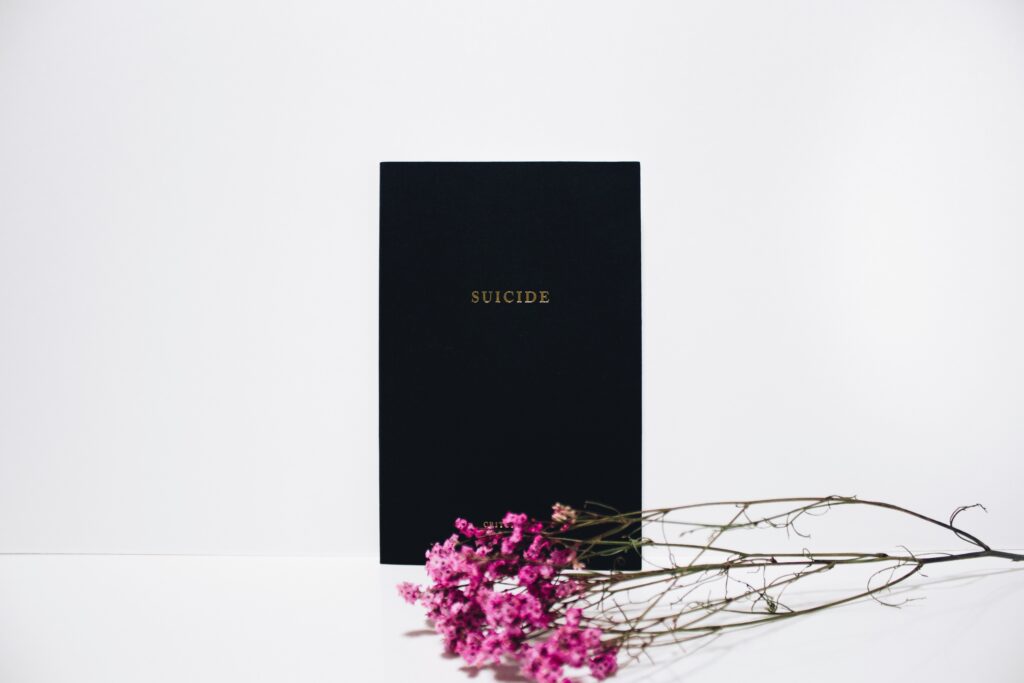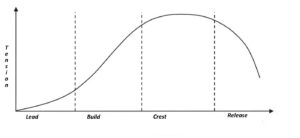I’m going to attempt to answer this question alongside you: why suicide? The answer, which I hope that you will also understand, is all about meaning.
(Before we begin, I want to reach out with great compassion and respect to Alexandra Valoras’ parents and friends: what you are experiencing is unimaginable, and I am so sorry for your loss. I myself have never lost a child to suicide, but I have stood alongside people who have, and I have watched my son and daughter lose friends in this way. I have lost close friends to suicide. Other than empathy, there is very little we survivors can do after the fact except to grieve, and in that grief, I join those who also mourn Alexandra’s end of life. We may eventually join the meaningful work to help prevent suicide, which is a noble cause, and it’s in that spirit that I offer this article, not because I know for sure how to walk the right way forward, but because I prefer to walk, however imperfectly, together.)
What does my life mean?
In both the instances where suicide overshadowed me, I was fortunate to have discovered new meaning. That meaning was enough for me to choose life. In the case of a young superstar like Alexandra Valoras, those of us who are curious and experienced read her diary much differently than Alexandra’s parents, teachers, school counselor, or close friends.
Your life – our lives – are not given meaning by some psychological diagnosis. They are also not about our achievements. Van Gogh, whose life also ended tragically, gave his life for a bigger purpose, a more profound reason, a much more personal meaning that he would never enjoy in life. In his case, and perhaps in the case of Alexandra Valoras, no one and no thing opened up their true meaning in a way that was accessible, practical, and durable for them while they were with us.
The gateway to suicide
Hypothesis: A life without meaning is the gateway to suicide.
Can this be proven?
When I was contemplating suicide, my thought process was rational, not emotional. I reasoned that, in my death, there would be more meaning reflected on my life. That is, the fact of having lived my life would attain a meaning beyond what I felt I had lived. The tears I shed in in the process of recovery from that thought process led me to believe that the feelings – emotions – I’d consciously suppressed were guardrails along the road to finding my meaning.
I’ve tested that hypothesis with others who have lost friends or family to suicide, and it seems to be validated by my sparse anecdotal evidence. On the other hand, it’s supported by books such as “Man’s Search for Meaning” by Victor Frankl or “The Book of Joy” by Nobel Peace Prize Laureates Tenzin Gyatso, the 14th Dalai Lama, and Archbishop Desmond Tutu.
Is there enough evidence, whether from your lived experience or from the accepted, lived wisdom of Frankl, the Dali Lama, Archbishop Tutu, and many others, to support this hypothesis about meaning?
What about your meaning? Do you have underlying meaning in your life? Does it animate your life’s purpose? Or not? If you don’t have strong meaning in your life, ask yourself about that. Try to investigate why, and what – for you – gives your life meaning. How could your life change with the discovery of your meaning or the deepening of it?
I hope you will agree with me that there is enough evidence – or even just meaningful reasons – for those of us still alive to change things for good. Even though it seems we must live through multiple tragedies to deepen our meaning, if we care that suicide rates keep rising we must be willing to stand on that evidence however scanty if we want to make a present change.
Proof of meaning
It is possible to prove the value of meaning in life with a rigorous investigation of its opposite. For example, we can read Frankl’s memoir of life in the Nazi death camps either as the author’s journal or as learned wisdom bought and paid for by many other lost lives.
Frankl came to feel that his survival was rooted in a purpose larger than he could grasp at the time, that a meaning beyond what he could reason or understand was at work, and that his life was bound up in that larger meaning. This was enough for him to want to live, even in a Nazi concentration camp, where daily reality opposed his life in every possible way.

Frankl could have chosen to die for any number of reasons, yet he found ways to allow meager moments of meaning to sustain him. Any human kindness, however small, might have to last him days or weeks, and he concluded that the meaning of his life was deeply connected to such things. He literally gave his life to this meaning and it sustained him. He was lucky enough to survive the death camps.
Frankl lived his post-incarceration life in full awareness of the importance of its discovered meaning. Today, with his help and the perspective of history, the full meaning of the millions of other lost lives gives us, perhaps, a bolder perspective on Frankl’s writing and post-incarceration work. We would not have this shared meaning without the work of those who, like Frankl, were both motivated and lucky enough to survive and share their insight and understanding with us.
For Frankl, the rigor of the investigation of meaning was life-threatening and, unlike Van Gogh, Frankl had enough objective insight into what was happening that he was able to remain alive and curious inside his own being.
Would Van Gogh have lived to see the success of his paintings had he shared Frankl’s insight? Possibly. But the proof of Frankl’s life work – and that of the Dali Lama, Archbishop Tutu, Nelson Mandela, Martin Luther King Jr, and the many others who gave and give their lives to meaning – comes in a large part through its accepted practice. These leaders followed a practical road map of meaning that any of us can choose to use, and they did so both expecting and achieving predictable results. Isn’t that proof enough that a meaningful life cannot be cut off in suicide?
I hope you will agree that it is.
The meaning of suicide
Also, I hope you will agree that, while today’s superheroes can inspire us with meaning that impacts millions of people, your meaning and mine only need to be big enough to sustain us individually, especially in the face of close-in suicide.
Alexandra Valoras’ journal has helped us understand the importance of meaning, both for her and for those of us who remain alive. Her death will inspire those closest to her to “know the signs” and “reach out” and all the other clichéd, hopefully-authentic responses that surround suicide, and that’s a good thing. But Alexandra gave us a greater gift: insight into a life that, for her, was meaningless.
Yes, Alexandra was accomplished, but sadly not in a way that held meaning for her. She was an achiever, but her achievements weren’t meaningful for her. Instead, she saw herself “…broken…a burden…lazy…a failure.” Those are the words of a human being in search of meaning.
How did our society help Alexandra find meaning? By doing all the right things. Except, of course, we didn’t do the one thing she wanted most. The meaning society offered to or imposed on Alexandra wasn’t the one she wanted or needed. #Fail.
The failure to offer Alexandra opportunity to find her own meaning is, I believe, what caused her death. No doubt all of us – parents, family, friends, teachers, society at large – did all the right things, but it didn’t turn out as predicted. Her journal proves that. We saw what we wanted to see, thought everything was fine, praised the achievements without noticing the achiever. This is not a criticism; it’s a tragedy.
Why? That’s a question beyond the scope of this article, but it is a good one to consider as you read the next section.
Finding individual meaning
For the fortunate few, meaning and life-purpose synergize. Several leaders are named in this article who achieved this synergy with gigantic results. For many of us, life is bifurcated between a responsible career and a meaningful side hustle or hobby without which the responsible career would be unsustainable. For others, like Van Gogh, meaning never seems to arrive, and existence becomes hollow, shallow, and aimless.
In the last week, have you asked anyone close to you about their life’s meaning? Have you asked yourself and answered honestly? These are not conversations to have over the ‘nets! There’s too much at stake to delegate meaning to social media. Like Alexandra, the truth of our individual meaning is hidden deep; it may require transformative excavation to discover our meaning. Unlike Alexandra, it’s my hope that you and I will give a more public, brutally honest, well-considered answer if asked about our meaning. Even if that answer is that life feels meaningless, rudderless, and empty, it’s a better starting point than ending one’s life.
A life that feels meaningless, rudderless, and empty is a life in good company – you have seen a short list of fellow travelers already! – because that’s the place where meaning can appear. The alternative, as we have seen, cuts off life. So what can we do as human beings who care about stopping suicide?
We can ask one another about our unique meaning. Maybe we will learn that we have quite a bit of that meaning in common with our friends or family. Maybe we will learn that others of us are at the pivot point between life and death, and take advantage of that knowledge to offer realistic and practical support in the process of owning our individual and collective meaning and our place in the world. Maybe we will learn from another’s meaning that we aren’t far from finding our own.
We won’t know unless we ask. Face to face, please.
What does society do to encourage meaning?
As we start to dialogue with one another around meaning, we may find that entire institutions fail in their well-meant attempts to offer it. One favorite example is the debate over STEM vs STEAM.
There’s nothing wrong with science, technology, engineering, and maths…unless you are a budding artist. Artists can be achievers, especially the artists who understand that it’s important to converge one’s passion and one’s purpose to make life sustainable.
Alexandra was an engineering whiz kid, and yet something was clearly missing. Was it art? Music? Anything but the analytical, scientific, technology-driven work she was doing? Why was the meaning she wanted so obviously absent from her life? In one’s penultimate year in high school there’s always a possibility that real meaning hasn’t developed, but the tragedy of Alexandra’s death (as reported in the press) is that her individual meaning seems to be obscured by an educational paradigm that forced her to achieve in a way that was deeply unsatisfying for her, even though she excelled.
When we push people indiscriminately down a track that society says is good for them (and for us) we take a huge risk: for some, the track may be totally incompatible with their meaning. It’s like using “black-box” prescription medication: for a very few, one of the side effects could be death. One could argue that we don’t know until we try, and that’s valid, but if trying feels as bad as it clearly did for Alexandra and no one notices, what then?
Over time and with practice we learn to go along to get along in hopes that somewhere along the way things will change. The overwhelmingly obvious evidence for Alexandra’s life – until it ended – was that things were fine; she had learned to say and do what was expected, even though it didn’t fill her up with individual meaning. Inside, her outward meaning felt like failure. Why? Clearly, she was pushed down a track out of which she could make no satisfying personal meaning.

As an outside observer and one whose own life has been bifurcated between a money-making career and the passionate heart and soul of a musician, I know what will happen to me if I ignore the music that gives my life meaning: I will atrophy. Perhaps my ultimate meaning is to learn how to narrow the distance between my two avocations, but whatever it is, I can’t do it if I cut myself off from either one. Both hold great meaning for me. I feel fortunate to have some understanding of this, and humbled by the personal cost I’ve paid to gain it.
Perhaps society or education or my parents or just plain luck made it possible for me to endure the despair I felt in my teenage years, but I believe that something bigger was at work. I had the freedom as a teenager to explore where music could take me. A Dixieland band. The pit orchestra for three high school musicals. Piano soloist with a symphony. Individual recitals. Competition. Accompanying. A one-man show. These were challenging things that I couldn’t experience in a classroom and that certainly would have been foreclosed in an all-STEM curriculum, had one been forced on me, for whatever well-intentioned reason.
I wonder: what extra-STEM activities offered Alexandra meaning? Was she encouraged to explore them?
Society can do better. For all the Alexandras out there. More than any other recent era, ours is one of great change. If we are cut off from meaning, that change is daunting. With meaning, we can meet change as a friend. With Alexandra, society missed its opportunity to offer durable meaning. We will have another chance. We will do better.
Why suicide, indeed?
Yes: suicides are increasing. Yes: it’s tragic. Yes: good people are working on the problem. But the problem is not preventing suicide; suicide is a symptom of a much larger issue. What is that issue? Lack of meaning.

If meaning could sustain Victor Frankl in the depths of a Nazi concentration camp, or the Dali Lama as he fled Tibet almost sixty years ago, or Archbishop Tutu, Nelson Mandela, and Martin Luther King Jr in their fight for civil rights, why aren’t we as a society more focused on offering one another opportunities to find and sustain individual meaning?
We have seen that meaning is a life and death issue. In that light, suicide, while tragic, becomes understandable, but only in part. For the full reveal, we need people who live from their deepest meaning. Either we learn to live with the consequences of our failure or actively support the quest for individual meaning. Which will it be?
The paradoxical gift of Alexandra’s life is that it helps us understand the reasons she chose to end it. That is meaning we can use.
No one is alone
I know how lonely it was facing my own suicide honestly and in full awareness. That is an empty place; no one seems to really get it, and protection of true intent becomes paramount. If your life feels empty enough that you might be in that pre-suicidal place, please give those closest to you the chance to offer support. If it’s easier to connect to a stranger, do that. There are resources at this website that may be useful.
And please know that, as solitary as you may feel, you are not alone. There are many of us who’ve been that close to the edge before. We are out there, and you can find us much more easily than you might think. Most of us aren’t psychotherapists, or mandated reporters, or trained peace officers; we’re just normal people who’ve fought our way through to a purpose that’s big enough to mentor you as you discover your meaning. If you like, you can find me here – there’s no paywall for this work, and if you feel you can trust me with your quest, I’d be honored to mentor this part of your journey.
Ready for a deeper dive? The Musimorphic Quest, a fully-mentored online active-learning experience will immerse you in practical ways to meet life’s challenges with skills you may not realize you already have. It’s not for everybody, but if you are that unique individual who really resonates with with the power of music and wants to learn to wield it with skill, give it a try. The landing page is here.
Why Suicide?



